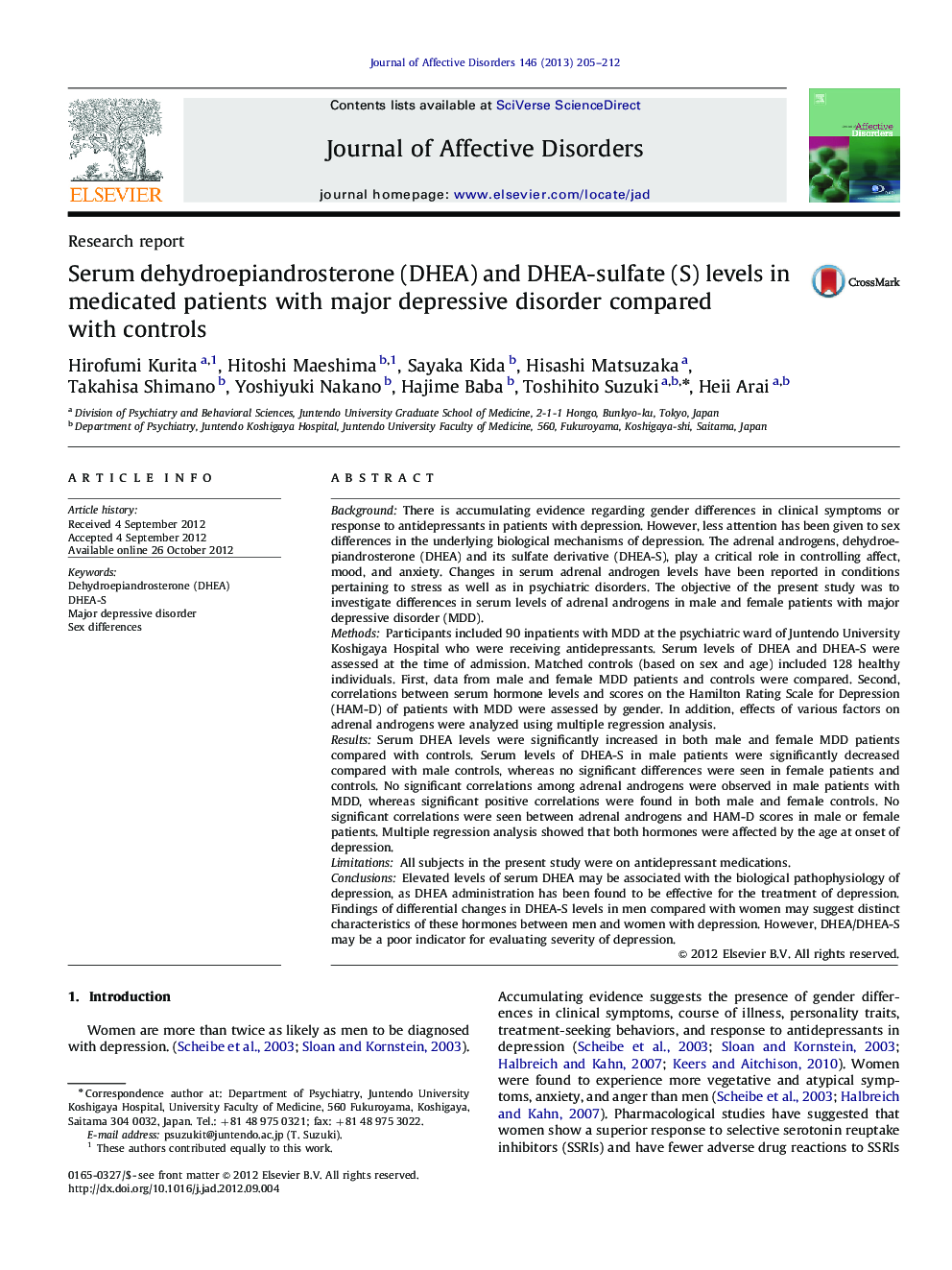| Article ID | Journal | Published Year | Pages | File Type |
|---|---|---|---|---|
| 4186265 | Journal of Affective Disorders | 2013 | 8 Pages |
BackgroundThere is accumulating evidence regarding gender differences in clinical symptoms or response to antidepressants in patients with depression. However, less attention has been given to sex differences in the underlying biological mechanisms of depression. The adrenal androgens, dehydroepiandrosterone (DHEA) and its sulfate derivative (DHEA-S), play a critical role in controlling affect, mood, and anxiety. Changes in serum adrenal androgen levels have been reported in conditions pertaining to stress as well as in psychiatric disorders. The objective of the present study was to investigate differences in serum levels of adrenal androgens in male and female patients with major depressive disorder (MDD).MethodsParticipants included 90 inpatients with MDD at the psychiatric ward of Juntendo University Koshigaya Hospital who were receiving antidepressants. Serum levels of DHEA and DHEA-S were assessed at the time of admission. Matched controls (based on sex and age) included 128 healthy individuals. First, data from male and female MDD patients and controls were compared. Second, correlations between serum hormone levels and scores on the Hamilton Rating Scale for Depression (HAM-D) of patients with MDD were assessed by gender. In addition, effects of various factors on adrenal androgens were analyzed using multiple regression analysis.ResultsSerum DHEA levels were significantly increased in both male and female MDD patients compared with controls. Serum levels of DHEA-S in male patients were significantly decreased compared with male controls, whereas no significant differences were seen in female patients and controls. No significant correlations among adrenal androgens were observed in male patients with MDD, whereas significant positive correlations were found in both male and female controls. No significant correlations were seen between adrenal androgens and HAM-D scores in male or female patients. Multiple regression analysis showed that both hormones were affected by the age at onset of depression.LimitationsAll subjects in the present study were on antidepressant medications.ConclusionsElevated levels of serum DHEA may be associated with the biological pathophysiology of depression, as DHEA administration has been found to be effective for the treatment of depression. Findings of differential changes in DHEA-S levels in men compared with women may suggest distinct characteristics of these hormones between men and women with depression. However, DHEA/DHEA-S may be a poor indicator for evaluating severity of depression.
